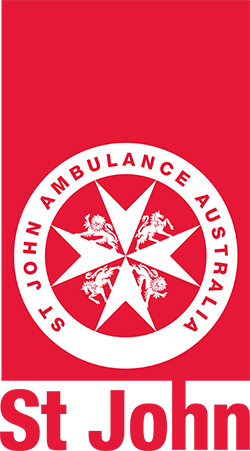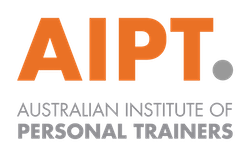In this post
Becoming a Male Childcare Worker: Everything You Need To Know

Childhood education is an extremely female-dominated industry. But in the last few years, male childcare workers are becoming more common.
Australia is breaking away from the gender stereotype that only women could or should work with young children. Men in childcare are being recognised for the unique attributes and skills they bring to the role, making it an excellent time for men to begin working in childcare.
It’s an excellent career opportunity where you’ll get to make a difference in the lives of Australia’s youngest generations.
As with stepping into any gender-dominated industry, you might have a few hesitations about how you’ll be received. But with gender stereotypes fading, if you step into your career backed with a recognised qualification and a strong skillset, you’ll find a lot of success.
Childcare Workers Explained
Childcare workers generally work with children of all ages between 0-12. There’s a high demand for childcare works in both full-time and part-time roles, such as:
- Childcare centre workers and managers
- After-school program carers
- Kindergartens teachers & teacher’s aides
- Primary school teacher’s aides
- Nannies
Childhood educators are required to be in frequent contact with parents, guardians and schools to ensure the most supportive and collaborative environment for the child. Because these early years are essential for a child’s development, both socially and intellectually, childcare workers are an integral part of these developmental years.
Some of the key responsibilities that childcare workers have are:
- Child safety
- Education and support
- Time management
- Activity planning and execution
- Child discipline
- Hygiene maintenance
- Food preparation
- Communication with parents/guardians
Skills you need to thrive as a childcare worker
Childcare workers need to have an array of skills and qualities to give kids the best care and education.
Soft skills are just as important as technical skills in this industry. Your innate qualities, like being a natural entertainer, a great communicator, and radiating warmth will allow you to make the room a comfortable place. That’s the first step in providing quality care.
The hard skills you learn in a childcare qualification will help you to teach, nurture, and instruct the children in your care.
Soft skills for childcare workers
- Decision making skills
- Patience
- Warmth
- Communication skills
- Enthusiastic nature
- Natural entertainer
- Time management
- Logic and analytical skills
Technical skills for childcare workers
- Planning and instruction
- Child education knowledge
- Classroom management
- Understanding of children’s nutritional needs
- Ability to teach hygiene and life skills
It’s crucial to learn the technical childcare skills in a formal setting, where you’ll get insights and advice from professionals. Working with children can be a high stakes job at times, because all responsibility lies on you. It’s best to be prepared for any situation by getting a formal qualification.
Childcare industry outlook
Future industry growth for childcare is very strong, with an estimated 36,800 job openings per year until 2023. Furthermore, childcare work offers both full-time and part-time roles. Currently, 47% of childcare workers work full-time. That means there’s plenty of opportunities to work part-time if you need the flexibility to focus on other priorities, such as family.
an estimated
36,800
job openings / year
only
49%
work full time
Future industry growth for childcare is very strong, with an estimated 36,800 job openings per year until 2023. Furthermore, childcare work offers both full-time and part-time roles. Currently, 47% of current childcare workers work full-time. That means there’s plenty of opportunities to work part-time if you need the flexibility to focus on other priorities, such as family.
The average childcare worker wage is $21-$30 per hour, depending on the center, the childcare worker’s education and experience. 31.8% of childcare workers obtain a Diploma or Advanced Diploma of Education, with another 25.6% completing a Certificate III or IV.
Currently, 95% of childcare workers are female, and this needs to change.
Breaking Old Stereotypes
To be a childcarer has always been considered women’s work. The assumption that women are more “nurturing” by nature has led to attitudes that they are best suited to jobs involving children. As much as we would like to deny it, we are often surprised when we meet or hear of a male childcare worker because, for generations, it wasn’t considered a “man’s job.”
What’s important to realize here is that the children won’t notice an abnormality in having a male teacher – rather the parents might. It takes a lot of preparation and trust for some parents to put their child’s safety in someone else’s hands.
Hence, there’s sometimes misplaced apprehension when this person is a male carer. These hesitations come from a place of unfamiliarity and the remnants of old attitudes. In the back of parents’ minds, these can cause worries that perhaps a male presence won’t be as nurturing or patient as a female’s, or that a male’s presence is incompatible with the industry.
We are slowly dismantling gender stereotypes, as new evidence displays that male figures in childcare are exceptionally beneficial and essential for a child’s development.
A study conducted by the former National Childcare Accreditation Council (NCAC), and current Australian Children’s Education and Care Quality Authority, found that a male presence in a childcare environment:
- Helps children recognize and evolve their gender identity
- Encourages equal, respectful relationships
- Promotes a healthy male gender role, that does not display aggression or emotional detachment
- Provides a positive male role model for kids during some of their most formative years
- Helps break the stigma that men can’t be equally as good early childhood educators when compared to their female colleagues
It’s also important to note that as males become more involved with this industry, there’s more research and steps put in place to encourage the recruitment of male childcare workers. Slowly but surely, the childcare industry is becoming more accepting and supportive of male carers.
What are the rewards of working in childcare?
Use your creativity everyday
To engage young minds you’ll have to come up with new, fun activities everyday. Children also have the most imaginative brains, and being surrounded by them all day will definitely rub off on you.
Have a real impact on young lives
Being a childcare worker is so much more than just ensuring a child’s needs are met. You’re helping them grow into their personalities, minds, and the world. With your support they’ll learn, gain life experiences, and become confident in themselves.
Plenty of jobs and room to grow
Childcare is a steadily growing industry, and that’s a massive benefit in a world where more and more jobs are being automated. The industry’s strong growth is projected to continue well into the future, which creates an abundance of opportunities for childcare workers. There’s plenty of career advancement in childcare, making the job even more fulfilling.
Great work/life balance
Childcare isn’t a 9-5. Depending on where you work, you’ll have a level of flexibility with your hours. Less than half of childcare workers are full-time (49%) which means shift work is the norm. This is great if you love having variety in your day, and means you can build work around your life (rather than the other way around).
How to Become a Childcare Worker
Most childcare workers obtain either a nationally recognized Certificate or Diploma qualification in Childcare or Education. Each qualification takes a different length of study to complete. There are courses available in Victoria, New South Wales, Western Australia, Queensland, and Northern Territory.
Certificate
- Certificate III in Childcare
- Certificate IV in Childcare
- Certificate III in Early Childhood Education and Care
- Certificate IV in Early Childhood Education and Care
A Certificate III or IV in Childcare or Early Childhood Education & Care is a great stepping stone into the childcare industry and is one of the most popular qualifications for this industry. A certificate will teach you all the basics there is to know when it comes to caring for and educating children within the requirements of the Education and Care Services National Regulations, as well as the National Quality Standard. Many who complete this qualification find themselves working in daycare centres.
Diploma/Advanced Diploma
A Diploma of Early Childhood Education and Care or a Diploma of Child Care is a more advanced qualification that takes longer to complete. With a diploma, you can enter the workforce at a higher level due to your more in-depth knowledge of learning frameworks, strategies, and child handling. Many who complete this qualification progress into senior positions as they gain experience, including childcare center managers.
Bachelor’s Degree in Early Childhood Education
For those who wish to jump headfirst into this industry, and become a fully qualified early childhood teacher, a Bachelor’s degree is a great idea. A Bachelor’s degree is usually three years of full-time study, including work placement. It will give you the tools and in-depth knowledge of child development, learning frameworks, and leadership qualities you will need to become a senior carer or manager.
The benefits of having more men in childcare are becoming increasingly apparent, causing the stigma of hiring males as child carers to be less present. So, if you’re a nurturing, fun-loving guy who loves helping children learn, the childcare industry needs you!
Becoming a Child Care Worker: Everything You Need to Know
Want to learn more about the child care industry and how you can pursue this super rewarding career? Check out our hub full of handy child care resources.
Browse Child Care Results
Certificate IV in School Based Education Support (Melbourne Only) CHC40221
The qualification CHC40221 – Certificate IV in School Based Education Support is referred to in industry as the Cert 4 Education Support or your teacher’s aide course. Education support workers assist teachers and support student learning in a range of...
Certificate III in Individual Support (Disability) (VIC Only, excl. Metro) CHC33021
Certificate III in Individual Support (CHC33021) qualification reflects the role of workers in the community and/or residential setting who follow an individualised plan to provide person-centred support to people who may require support due to ageing,...
Certificate IV in Ageing Support (VIC Only, excl. Metro) CHC43015
Certificate IV in Ageing Support (CHC43015) reflects the role of support workers who complete specialised tasks and functions in aged services; either in residential, home or community based environments. Workers will take responsibility for their own...
Diploma of Leisure and Health (VIC Only, excl. Metro) CHC53415
Diploma of Leisure and Health (CHC53415) reflects the role of workers with responsibility for designing, implementing and evaluating health and leisure activities, and programs for clients in one or more sector areas. Work may be in residential facilit...
Certificate IV in Mental Health Peer Work (VIC Only, excl. Metro) CHC43515
CHC43515 – Certificate IV in Mental Health Peer Work qualification reflects the role of workers who have lived experience of mental illness as either a consumer or carer and who work in mental health services in roles that support consumer peers or car...
Certificate III in Early Childhood Education and Care (VIC Only, excl. Metro) CHC30121
This qualification reflects the role of educators in early childhood education and care who work in regulated children’s education and care services in Australia. They support children’s wellbeing and development in the context of an approved learning...
Diploma of Early Childhood Education and Care (VIC Only, excl. Metro) CHC50121
The Diploma of Early Childhood Education and Care qualification reflects the role of educators in early childhood education and care who work in regulated children’s education and care services in Australia. Educators at this level are responsible for...
Diploma of Emergency Health Care (VIC Only) HLT51020
This qualification starts you on the pathway for a role as an Ambulance Transport Attendant, providing non-emergency transport and care for patients who have a low or medium acuity or chronic illness or disability and require transportation. You will g...
Certificate III and Certificate IV in Allied Health Assistance HLT33021, HLT40321
Turn your passion for helping people into a career in Allied Health Assisting. If you’re ready to advance your career in healthcare support, the HLT33021 Certificate III in Allied Health Assistance and HLT40321 Certificate IV in Allied Health Assistanc...
Bachelor of Education (Physical & Health Education) (NSW Only)
If you’re keen to pursue a career in physical and health education, the Bachelor of Education (Physical and Health Education) will provide you with the graduate qualification to become a PDHPE teacher. Based on the Graduate Outcome Survey 2021, ACPE wa...
Psychology & Mental Health Essentials
Explore the fascinating psychology behind our brains, bodies and behaviours and learn new ways to improve mental health and wellbeing. Learn directly from Australia’s leading counsellors, psychologists and health coaches. Discover the complex inner wor...
Certificate IV in Building & Construction (Building) CPC40120
CAL’s Certificate IV in Building and Construction (Building) will kickstart your pathway towards becoming a licences builder by developing your knowledge of key project planning activities, risk management, estimating and contract admin, and legal requ...
Alcohol & Other Drugs Short Course
This Alcohol & Other Drug Course is designed to provide aspiring professionals and those seeking professional development with a foundational skillset and knowledge in alcohol & other drugs. This introductory course comprises 8 units from our n...
Mental Health Short Course
This Mental Health Course is designed to provide aspiring professionals and those seeking professional development with a foundational skillset and knowledge in mental health. This introductory course comprises 8 units from our nationally recognised (C...
Certificate III in Sport, Aquatics and Recreation SIS30122
The SIS30122 Certificate III in Sport, Aquatics and Recreation will equip you with the tools and knowledge you need to take on operational and customer support positions in the sport or community recreation industry. This hands-on qualification will eq...
Diploma of Early Childhood Education and Care (QLD Only) CHC50121
Do you have a passion for educating and shaping young minds? Then consider a Diploma of Early Childhood Education and Care. Learn the skills to plan, implement and manage programs in early childhood services, in accordance with licensing, accreditation...
Certificate IV in Community Services (Perth Only) CHC42021
The Certificate IV in Community Services is designed for those looking to advance in community service roles. This qualification equips you to support person-centred services to individuals and groups. As a community service worker, you will provide ad...
Certificate III & IV in Fitness SIS30321/SIS4022
If you’re looking for a new career and want to help people achieve their health and fitness goals, then the combined Cert III and IV in Fitness is the course you need. As a qualified Personal Trainer, you’ll be able to work with a wide variety of clie...
Diploma of Sport SIS50321
The Diploma of Sport is geared towards fitness professionals, who are looking to take the next step in their career. At Fit Education we’ll connect you to many of Australia’s top sports performance experts. Together these professionals offer a unique...
Certificate IV in Allied Health Assistance (Nutrition and Dietetic Support) HLT43021
Our Certificate IV in Allied Health Assistance (Nutrition and Dietetic Support) will equip you with the practical skills and knowledge to support Dietitians and Nutritionists in improving patient wellbeing through tailored nutritional programs. With th...
Online courses also available
Latest Articles
How to Apply for Work Placement: Tips & Resources
Congratulations! You’re about to embark on an exciting journey where you will practise and develop t...
11 Hobbies That Can Make You Money: Use Your Passion for Profit
Hobbies often get a bad rap. They’re seen as just a way to kill time, a mindless escape from t...
Is The Job You Hate Killing You? Why You Need to Make a Change
Do you hate your job? Studies show that staying in a job you hate has negative health effects and ev...
Want to read more?
Infographic: Highest Paying Call Centre & Customer Service Jobs In Australia
The average customer service representative salary in Australia sits at $59,091, but if you work you...
5 Reasons a Community Development Career is Perfect for You
Looking for a job where you can live your values? Believe in empowering people? Find out how to star...
Women in STEM Careers
Women are shaping the way for breakthroughs in science, technology, engineering and maths. Find out...












